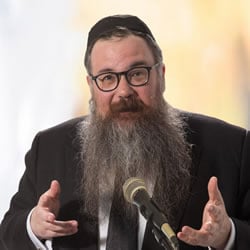
My earliest political memory was the Ford vs. Carter race of 1976. I've told this to people before and they laugh at me because I was only two and a half years old, but I am telling you that I remember it very well. I didn't understand the issues, but I understood that two men were competing to see who would get to run the country. And I understood that my parents got to help choose who won. My mother explained to me that we live in a country where the people get to decide who they want to be in charge. She explained that we did not have a king and that if the people didn't like the president, they could get him fired. She even told me about the president who was forced to resign just a couple of years earlier. (That I don't remember because I was only two months old.)
At any rate, I have this flashback to the fall of '76 every four years. The RNC is Aug 27 and the DNC is September 3. Things are starting to get cooking.
As an adult watching this race, I sometimes pause and think, "Mom said I get to choose, or at least be a part of the choosing. Do I know what the choices are?"
It is so easy these days to get wrapped up in partisan thinking. People love or hate candidates based on whether they have a D or an R after their name. The non-thinking seems to have become rampant. Election time should be a time for honestly considering issues, not for whipping up emotional excitement based on pre-existing loyalties.
That's why I got really excited when my friend, Rabbi Nochum Mangel of Dayton, Ohio and Rabbi Shmuel Klatzkin began developing a series of Torah classes that would allow people to really understand the issues on their own. "We're not telling them what to think," explains Rabbi Mangel, "We're giving them the tools how to think!" As the months went by and the course continued to be developed, Rabbi Mangel and I would often converse. On one such occasion we were speaking about political rhetoric and how damaging it is when people don't know how to analyze an issue without the spin of their favorite talk show host or political pundit.
In that conversation, Rabbi Mangel reminded me about a story that the Lubavitcher Rebbe, of righteous memory, used to tell on occasion:
On one of his travels, his predecessor the sixth Rebbe of Chabad, Rabbi Yosef Yitzchak Schneersohn (1880-1950), was approached by two men who had been debating whether communism or capitalism was closer to the Torah.
The sixth Rebbe answered: "Mortal wisdom is limited and can only perceive one dimension of the truth. Capitalism reflects the truth in the verse (Deuteronomy 15:10): 'And G‑d will bless you in all you do.' Communism reflects the truth in the verse (Deuteronomy 15:4): 'There shall be no poor among you.' The Torah, which is the essence of good and truth, transcends and combines the positive elements of both."
As we were developing the publicity for the class, we came up with the tagline: "We present the sources. You decide." That's really the point. Rabbis need to be rabbis and not be politicians. We need to teach the truth as embodied in G‑d's law, the Torah. When we know what the Torah says, then we can go forth and figure out which party, which candidate and which agenda in any given case most closely matches the truth of Torah.
I am very excited to present this series on Jewish.tv. "Election 2012 - A Jewish Perspective," is a six-part series on the topics hotly debated during the election season. New episodes air each Thursday night for six weeks. I hope you'll watch, comment and ask questions.






